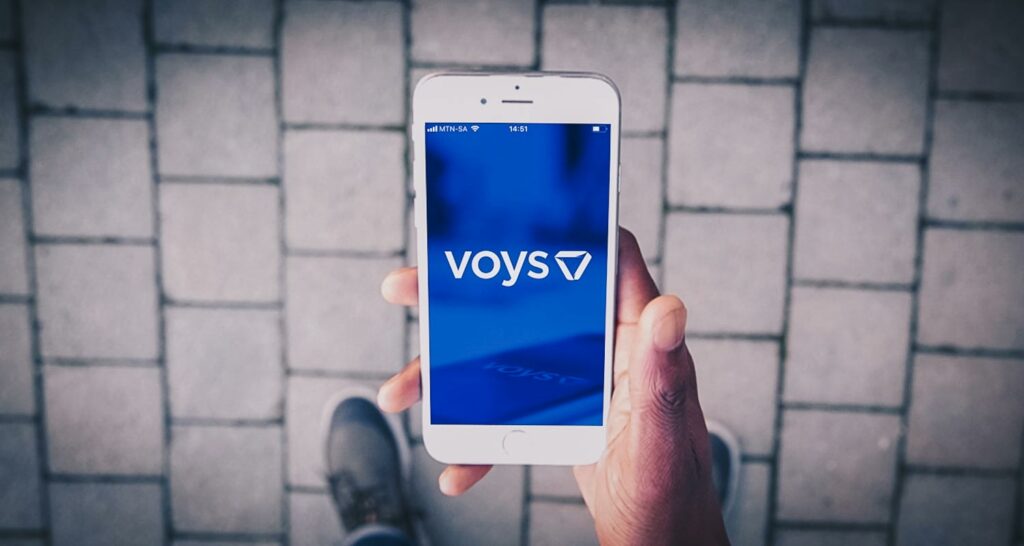Softphones – The good, the bad, the ugly


What is a softphone?
A softphone is an application on your computer, smartphone or tablet that renders the device a VoIP phone.
It’s the software equivalent of a VoIP desk phone or cordless phone.On paper, this is brilliant. You can finally get rid of that clunky desk phone that has been creating clutter on your desk. You don’t need to invest in new VoIP phones. You can take your landline with you, wherever you go! Right? Well. Yes, but no….
I’ll get straight to the point: Softphones are great in theory and you would say they should simply work. How hard can it be? The reality is, a softphone is not as reliable as a dedicated physical VoIP phone (hardphone) that was built for this purpose.
Softphones can be divided in two main categories:
- Softphones for PC’s
- Softphones for mobile devices. I.e. smartphones and tablets
Reliability is mainly a challenge with softphones in the latter category.

A softphone on a mobile device should ideally be seen as a nice option to have on hand. Not as a complete replacement for physical VoIP phones.
It’s with softphones on mobile devices where the reliability becomes potentially iffy. Don’t get me wrong. Mostly, the VoIP apps will work just fine. And this is great when it’s a free service and/or you’re using it for private calls (for instance, to call your aunt in the UK). However, when your phone is your business’ lifeline, it needs to work 100%, all the time. No exceptions. And this is where you need to know what you can expect from softphones.
Common issues with softphones on mobile devices:
- Call quality is less reliable (e.g. choppiness, delay)
- Calls not going through (i.e. missing calls)
Why does this happen?
Two factors contribute to reliability issues with softphones on mobile devices.
- Challenges with signal/connectivity
- Limitations imposed by the mobile operating system. I.e Android and iOS
The most challenging is the signal. You move around with your cell phone and the internet signal won’t be equally good everywhere all the time. Secondly, the WiFi connections on mobile devices are not as strong as on a laptop. On top of that, many WiFi networks aren’t set up that well. Most ISP’s provide cheap consumer/home-office-grade WiFi routers with their services. This is generally sufficient for general internet use, but VoIP by it’s real-time nature is very sensitive to even the slightest signal loss of variation. When the signal is insufficient, call quality will be bad, or calls won’t go through altogether.
There are also challenges related to the smartphone’s ‘willingness’ to allow your VoIP softphone app to ‘listen’ for inbound calls. Security settings and battery-saving ‘Low Power Mode’ can bar the softphone from receiving calls.
Regular software updates from Android and iOS can create a host of issues. What used to work perfectly fine, can stop working overnight. Having the developers of the softphone app scramble to figure out how to work around the changes in the operating system and launch an updated app version on the app store.

What we strongly advise
If you can, rather consider using a physical VoIP phone or our Webphone as your primary device and the Voys 4G app (mobile softphone) as a ‘nice to have’ extra device to have on hand.
Failover is key
If you can only use a softphone (mobile or desktop), I strongly recommend adding your cell phone number as a failover in case the softphone can not be reached when someone calls your business number. Forwarding charges will then apply, but we believe it’s better to pay for an inbound call, than to miss that important call from your customer altogether. Lastly, we suggest setting up voicemail-to-email. For outbound calls, the Voys 4G app has a unique 2-step calling option that will allow you to make outbound calls with your office number when your connectivity is insufficient for a normal VoIP call.
Summary
Softphones are great in theory but come with some potential real-world challenges. And we want to manage your expectations accordingly.
Softphones on mobile devices such as your smartphone are not as reliable as physical VoIP phones. Two factors influence the reliability of the softphone:
- Inherent challenges with internet signal on smartphones;
- The smartphone’s ‘willingness’ to allow your VoIP app to ‘listen’ for inbound calls (security settings and battery-saving ‘Low Power Mode’ can bar the softphone from receiving calls).
The above two factors can cause suboptimal call quality and even calls not going through altogether.
What we strongly advise: If you can, rather consider using a physical VoIP phone or our Webphone as your primary device and the Voys 4G app (mobile softphone) as a ‘nice to have’ extra device to have on hand. If you can only use a softphone (mobile or desktop), we strongly recommend setting up your cell phone number as a failover in case the softphone can not be reached when someone calls your business number. Forwarding charges will then apply, but we believe it’s better to pay for an inbound call, than to miss that important call from your customer altogether. Lastly, we suggest setting up voicemail-to-email.
Still Not Sure What VoIP Is or How It Can Grow Your Business?
If you’re scratching your head wondering, “What on earth is VoIP, and how can it help my business?” don’t worry—you’re not alone! VoIP (Voice over Internet Protocol) can seem like a bit of a techie term, but once you get the hang of it, you’ll wonder how you ever lived without it.
To clear up any confusion and help you decide if VoIP is the right fit for you and your business, we’ve got some handy resources. Dive into these links to get the lowdown on VoIP and see how it can revolutionise your business operations:
Keeping Your Business Telephone Number – Concerned about changing your business phone number during a switch to VoIP? This page will show you how to keep your existing number and transition smoothly, so you can avoid the hassle of notifying every client and partner.
What is VoIP? – This resource breaks down the basics of VoIP, explaining how it works and why it’s such a game-changer for communication. If you’re new to VoIP, this is a great place to start.